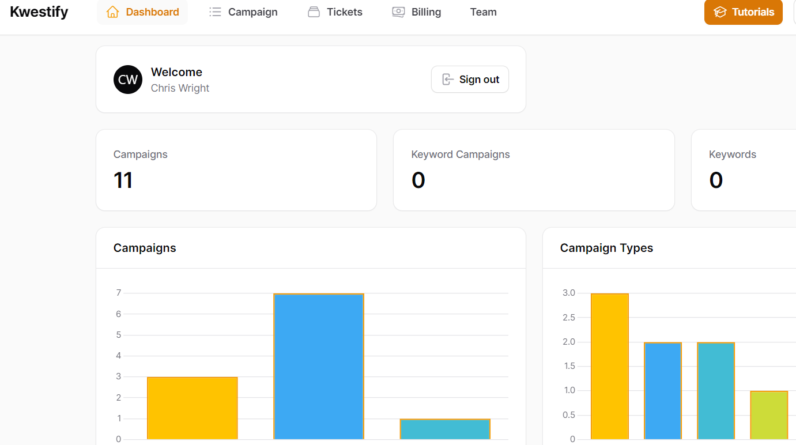
Affiliate marketing is a powerful concept that allows you to earn money by promoting other people’s products or services. In this article, you’ll uncover the ins and outs of affiliate marketing – what it is, how it works, and why you should consider jumping on this profitable bandwagon. Whether you’re a seasoned marketer or just exploring new ways to generate income, understanding the fundamentals of affiliate marketing will open up a world of possibilities for you. So, buckle up and get ready to embark on an exciting journey into the realm of affiliate marketing! Affiliate marketing is a popular and effective marketing strategy that allows individuals or businesses to earn commissions by promoting other people’s or companies’ products. Essentially, it is a collaborative effort between the merchant and the affiliate, where the affiliate earns a commission for every customer or sale generated through their marketing efforts.
Definition of Affiliate Marketing
Affiliate marketing can be defined as a performance-based marketing strategy in which affiliates promote products or services of other companies and earn a commission for every sale or customer acquisition they generate. It is a win-win situation for both the merchant and the affiliate, as the merchant gets additional sales, while the affiliate earns a commission for their efforts.
How Does Affiliate Marketing Work?
The concept of affiliate marketing is quite straightforward. Affiliate marketers sign up for an affiliate program, usually offered by merchants or companies, to promote their products or services. They are provided with a unique affiliate link or code, which they use to track the traffic or sales generated from their promotions.
When an affiliate successfully refers a customer who makes a purchase through their affiliate link, the affiliate is rewarded with a commission. This commission can be a fixed amount or a percentage of the sale, depending on the terms of the affiliate program. This entire process is facilitated by affiliate tracking software, which accurately tracks the referrals and commissions owed to the affiliate.
Benefits of Affiliate Marketing
Affiliate marketing offers numerous benefits for both the affiliate and the merchant. Firstly, it is a low-cost marketing strategy for merchants, as they only pay commissions when a sale is made. This eliminates the need for upfront investment in advertising or marketing campaigns.
For affiliates, one of the biggest advantages is the potential to earn passive income. Once the initial promotional effort is done, affiliates can continue to earn commissions on sales generated through their affiliate link, even without actively promoting the product. Additionally, affiliates have access to a wide range of products and services to promote, allowing them to cater to various interests and audiences.
Types of Affiliate Marketing
There are various types of affiliate marketing that affiliates can choose from, depending on their preferences and capabilities. Some of the common types include:
-
Pay Per Sale (PPS): This is the most common type of affiliate marketing, where affiliates earn a commission for every sale made through their referral link.
-
Pay Per Click (PPC): Affiliates earn a commission for every click their referrals make on the merchant’s website, regardless of whether a sale is made or not.
-
Pay Per Lead (PPL): Affiliates earn a commission for every lead they generate for the merchant. This could include filling out a form, signing up for a free trial, or subscribing to a newsletter.
-
Two-Tier Affiliate Marketing: In this type of affiliate marketing, affiliates earn a commission not only for sales made through their affiliate link but also for new affiliates they refer to the program.
How to Become an Affiliate Marketer
If you’re interested in becoming an affiliate marketer, follow these simple steps to get started:
-
Choose Your Niche: Determine the specific products or services you want to promote and focus on a niche market that aligns with your interests or expertise.
-
Research Affiliate Programs: Look for reputable affiliate programs that offer products or services related to your chosen niche. Consider factors such as commission rates, cookie duration, and payment terms.
-
Sign Up for Affiliate Programs: Once you have identified suitable affiliate programs, sign up and get approved as an affiliate. Be prepared to provide information about your marketing channels and methods.
-
Set Up Your Marketing Channels: Establish your online presence through a website, blog, or social media platforms. Build an audience and create valuable content that resonates with your target audience.
Choosing the Right Affiliate Program
Choosing the right affiliate program is crucial for your success as an affiliate marketer. Consider the following factors when selecting an affiliate program:
-
Reputation and Credibility: Ensure that the merchant and affiliate program have a good reputation in the industry. This will ensure that you are promoting quality products or services that won’t harm your own reputation.
-
Commission Structure: Review the commission structure and ensure it aligns with your financial goals. Some programs offer higher commissions but may have lower conversion rates, so weigh the pros and cons before making a decision.
-
Cookie Duration: Cookie duration refers to the length of time a cookie will track a customer after they click on your affiliate link. Longer cookie durations give you a better chance of earning a commission if the customer makes a purchase at a later time.
-
Support and Resources: Look for programs that provide you with the necessary support and resources to succeed as an affiliate marketer. This could include training materials, marketing tools, and dedicated affiliate managers.
Creating Quality Content
Once you have chosen your niche and affiliate programs, focus on creating high-quality content that engages your target audience. Consider the following tips:
-
Know Your Audience: Understand the needs, interests, and pain points of your target audience. This will help you create content that resonates with them and provides value.
-
Provide Informative Content: Offer valuable information, insights, and solutions to your audience through your content. This will establish you as an authority in your niche and build trust with your readers.
-
Use Visuals: Incorporate visually appealing images, videos, or infographics in your content to enhance engagement and convey your message effectively.
Implementing Affiliate Links
Once you have created compelling content, it’s time to strategically place your affiliate links. Here are some best practices:
-
Contextual Placement: Embed your affiliate links naturally within your content, where they are relevant and add value to your readers. Avoid being overly promotional or spammy.
-
Call-to-Action: Encourage your readers to take action by using persuasive call-to-action phrases that prompt them to click on your affiliate link.
-
Disclosure: Be transparent with your audience by clearly disclosing that you are using affiliate links, as required by law. This helps maintain trust and credibility with your readers.
Tracking and Analyzing Results
Tracking and analyzing your affiliate marketing results is crucial to identify what’s working and what needs improvement. Here’s how you can do it effectively:
-
Use Tracking Software: Utilize affiliate tracking software to accurately track clicks, conversions, and commissions. This will provide you with insights into which promotional efforts are generating the most results.
-
Analyze Performance: Regularly review your performance metrics to understand which products, promotions, or marketing channels are yielding the best results. Focus on optimizing and scaling those efforts.
Tips for Successful Affiliate Marketing
To maximize your success as an affiliate marketer, consider the following tips:
-
Build Trust: Focus on building trust with your audience by providing valuable content, being transparent about your affiliations, and recommending products or services that genuinely benefit them.
-
Stay Updated: Keep up with industry trends, new products, and changes in consumer behavior to ensure your content remains relevant and timely.
-
Continuously Learn and Improve: Stay curious and invest in your knowledge and skills by attending webinars, reading industry blogs, and networking with other affiliate marketers.
In conclusion, affiliate marketing is a powerful marketing strategy that allows individuals or businesses to earn commissions by promoting products or services. By understanding the basics of affiliate marketing, choosing the right programs, creating quality content, and implementing effective strategies, anyone can become a successful affiliate marketer. Remember to track and analyze your results, stay updated with industry trends, and continuously improve your skills to stay ahead in the ever-evolving world of affiliate marketing. Happy affiliate marketing!






